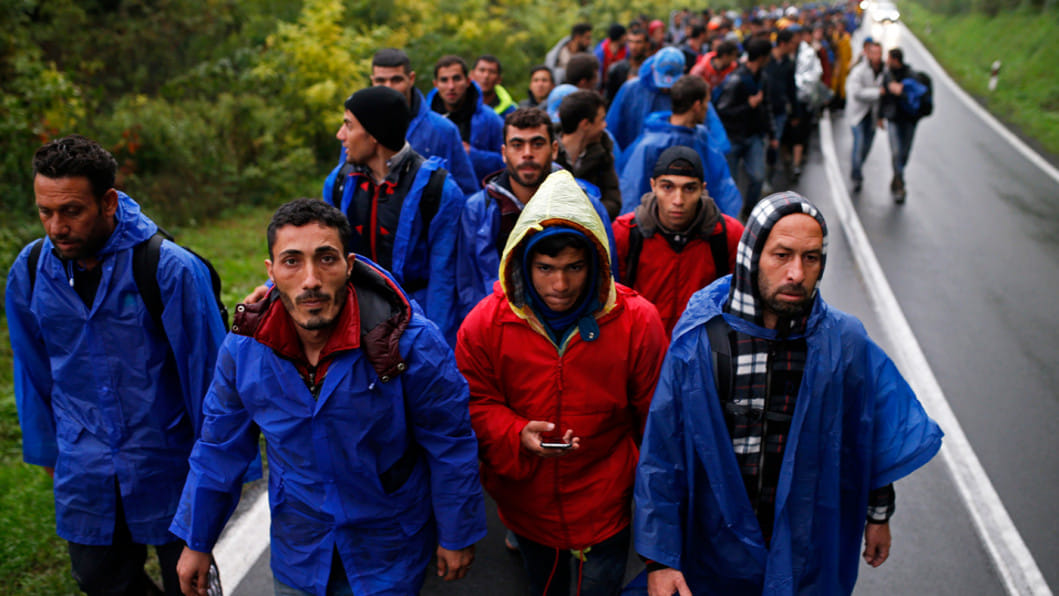Migrant crisis: Slovenia eases border restrictions

Slovenia says it has allowed most of the 5,000 people who were stranded in wet and muddy conditions on its border with Croatia on Monday in the country.
It had previously vowed to take in only 2,500 migrants per day.
Croatia has also opened its border with Serbia, where thousands more migrants are trying to reach northern Europe.
Aid agencies have been warning of dire conditions as bottlenecks develop at border crossings in the Balkans.
Hundreds of thousands of migrants, many from Syria, Africa and Afghanistan, have been making their way from Turkey to the Balkans in recent months, in a bid to reach Germany, Sweden and other EU states.
On Monday evening, Germany has seen large rival rallies in Dresden to mark the first anniversary of the anti-immigrant group Pegida.
They come amid fears the group is becoming more radical in response to Germany's decision to take in hundreds of thousands of refugees this year
Croatia and Slovenia appeared to ease restrictions on the flow of migrants late on Monday, after thousands of people were stranded for hours in wet, cold and windy conditions.
Both countries imposed stricter controls at the weekend after Hungary, citing security concerns, closed its southern border and forced migrants to switch to a slower route via Slovenia.
Slovenia's interior ministry said on Monday that some 5,000 migrants were allowed to enter from Croatia, and 900 of them had already travelled onwards to Austria by the evening.
Slovenia earlier criticised Croatia for allowing large groups of migrants over the border, and breaking an agreement to limit such transfers to 2,500 people a day.
Meanwhile, Croatia decided to open its border late on Monday, after aid workers warned of "dire" conditions for another 3,000 refugees stuck in cold and wet weather without shelter on the Serbia-Croatia frontier.
Croatian buses transported the thousands of migrants to a nearby reception centre.
Croatia's Prime Minister Zoran MIlanovic said his government had hoped to stem the flow of people but poor conditions on the Serbian side of the border had forced them to let the migrants through.
"It's apparent that this is no solution, so we will let them through. We will send them toward Slovenia," he said.
Before Monday's mass crossing, the UNHCR said 10,000 migrants were stranded in Serbia - with more than 6,000 entering from Macedonia on Monday alone.
Some Serbian officials have also indicated they may in turn hold back arrivals from the south.
More than 600,000 people, most of them Syrians, have reached Europe so far this year compared with just over 200,000 for the whole of 2014
Germany has said it expects 800,000 asylum seekers this year, but it is believed the number could be as high as 1.5 million.
Scuffles broke out during protests in Dresden on Monday, as 20,000 Pegida supporters confronted a similar number of counter demonstrators amid an angry backlash over Germany's open-door policy towards migrants.

 For all latest news, follow The Daily Star's Google News channel.
For all latest news, follow The Daily Star's Google News channel. 



Comments